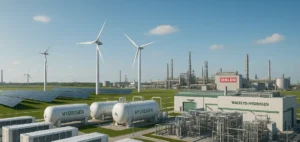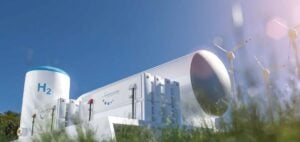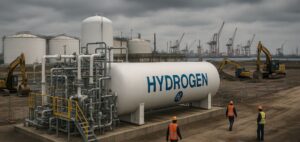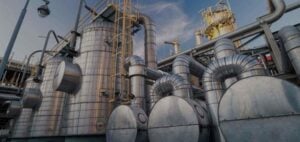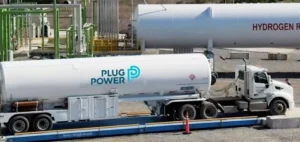The oil group Repsol has announced the suspension of all its investment projects in green hydrogen in Spain. This decision comes in response to what Repsol describes as an “unfavorable environment” due to the establishment by the Spanish government of a permanent tax on the profits of energy groups.
Repsol had planned three green hydrogen projects in Spain: one of 100 megawatts (MW) in Bilbao, another of 100 MW in Cartagena, and the last of 150 MW in Tarragona. These projects were designed to support the country’s industrial energy transition by providing a renewable energy source.
Regulatory Context
Spanish Prime Minister Pedro Sánchez implemented an exceptional tax at the beginning of 2023 targeting the profits of major energy and financial groups. Initially intended to last two years until the end of 2024, this tax was made permanent as part of a government agreement signed a year ago with the far-left party Sumar.
This fiscal measure aims to offset the economic support measures implemented in recent months to combat rising inflation. However, it has been criticized by several companies in the energy sector, including Repsol, which believes this tax hampers the long-term investments necessary for the industrial energy transition.
Impact on Investments
According to a Repsol spokesperson, the current regulatory framework is not conducive to sustainable investments in renewable hydrogen. The group emphasizes that the perpetuation of this tax deters companies from investing in industrial assets that generate employment and strengthen Spain’s energy independence.
Repsol also indicated that this decision could compromise Spain’s ambitions to become a global leader in green hydrogen production. Spain aims to produce this hydrogen from renewable electricity, notably through its numerous solar and wind farms, rather than from fossil fuels.
Sector Reactions
Repsol’s decision to freeze its investments is not isolated. Other companies in the energy sector have expressed their dissatisfaction with this fiscal measure. They fear that the continuation of this tax could hinder energy transition initiatives and limit foreign investments in the country.
These companies argue that the establishment of a permanent tax on profits can discourage investors from committing to long-term projects essential for achieving the decarbonization and energy transition goals set by the European Union.
Prospects for Green Hydrogen
Green hydrogen is considered a key solution for decarbonizing various industries, such as steelmaking, fertilizer production, and transportation. Many countries are investing heavily in this technology to replace coal and other fossil fuels in energy-intensive sectors.
Spain, with its renewable energy resources, had the potential to become a major player in green hydrogen production. However, recent fiscal decisions could hinder these ambitions and slow progress towards a greener and more sustainable economy.









